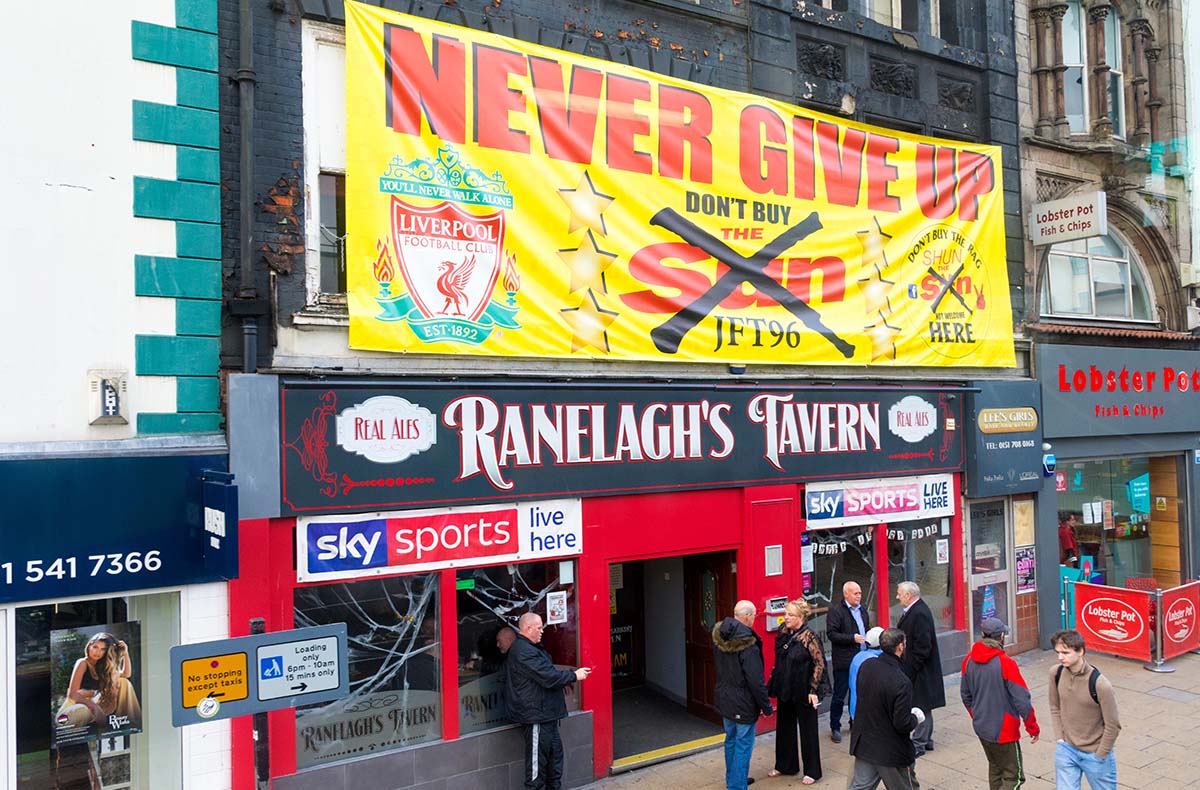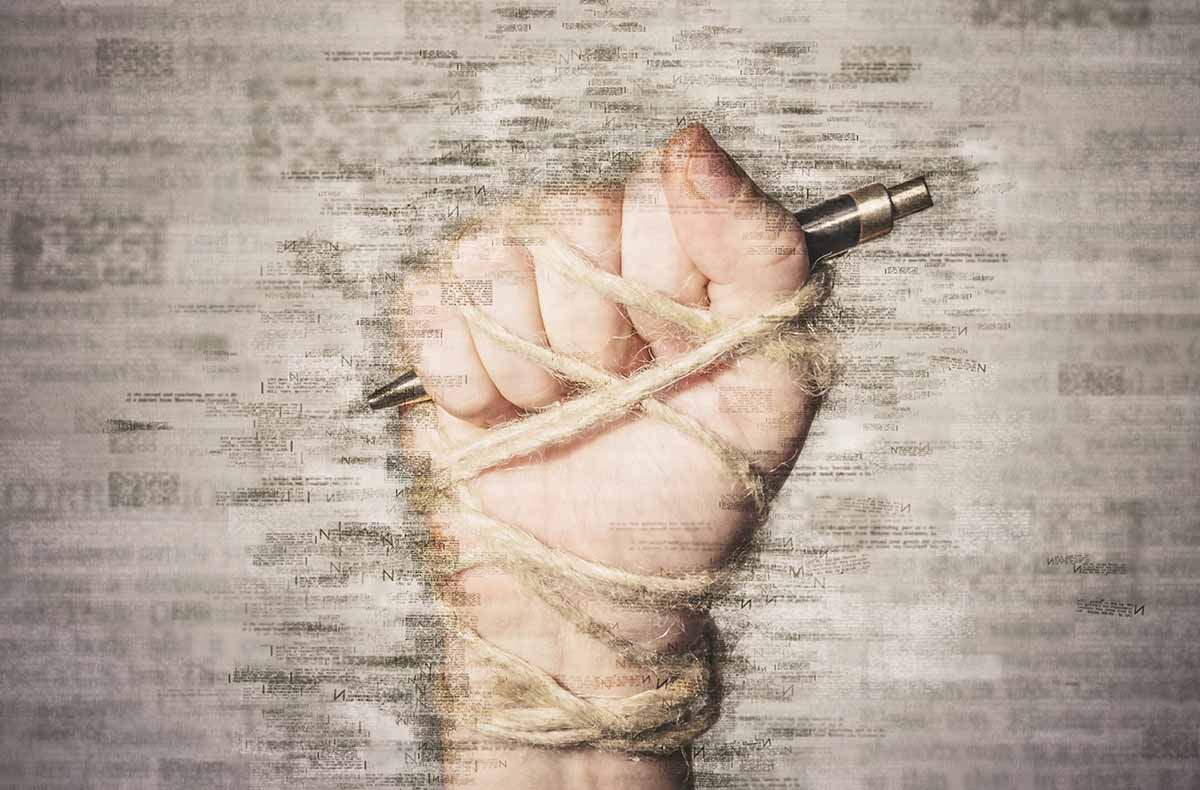
Police lie. Authorities lie. Governments lie. They do it to protect their own interests. They do it because they can. The United Kingdom needs a Hillsborough Law. It is important that public servants understand that they will face prosecution if they lie.
The unlawful killing of 97 football supporters during the FA Cup semi-final between Liverpool and Nottingham Forest at Sheffield Wednesday’s stadium in 1989 is one of the most despicable episodes in modern British history. Senior police officers knew immediately that the match commander’s decision to open the gates caused an avoidable crash, which led to fatalities and hundreds of injuries. Instead of accepting responsibility, the authorities deflected the blame onto Liverpool supporters. It took more than three decades for the truth to emerge.
Even so, there has been little resolution for the families of the dead and the survivors. The only person convicted for their role in the disaster was the former club secretary at Sheffield Wednesday, who was fined £6,500 for a health and safety infringement.
The police finally apologized to the families in January. The College of Policing’s chief executive officer said, “policing got it badly wrong,” and promised a “cultural change” in the way forces operate.
Change is necessary. Two years ago, the trial of two South Yorkshire police officers and the solicitor who worked alongside them for perverting the course of justice collapsed. The trio had amended statements of junior officers to remove criticism of the police operation at Hillsborough before the initial public inquiry. A barrister for one of the men said: “Like most big organizations, the instinctive reaction was to come out fighting and defend themselves against criticism.” Yet they walked out of court free men. The judge ruled that the 1989 inquiry was “non-statutory” and because of this there was no obligation for the three defendants to present unaltered statements. They were able to mislead the inquiry with impunity.
The idea that public servants could serve up deliberately altered evidence to an official body is appalling. A Hillsborough Law would create a new duty of candor for public employees and demand that officials tell the truth and cooperate proactively with investigations and inquiries.
As part of last month’s apology, the College of Policing and the National Police Chiefs’ Council emphasized that their code of ethics will be altered and “cand[or] will be a key theme.” This does not go far enough. The police would still be policing themselves.
The term “Hillsborough Law” is an emotive one, but it does not begin to capture the impact of any potential legislation. A wide-ranging group of campaigners would benefit from breaking down the institutionalized circling of wagons when the authorities are confronted with accusations of failing in their duty. The most obvious recent example is Grenfell United, which is composed of bereaved and survivors who suffered when fire swept through the west London tower block six years ago.
They have not had satisfactory answers from the authorities about the causes of the horrific inferno. Lawyers for the company whose cladding was used at Grenfell said that the government’s claim that its guidance forbade the use of combustible materials is a “political lie.”
The Covid-19 Bereaved Families For Justice group is also behind the initiative. Preliminary hearings for the inquiry into the handling of the pandemic open at the end of this month. The imposition of a duty of candor would make a huge difference in the quest for clarity.
There are so many people across Britain whose experience dealing with the authorities after a tragedy has been worryingly opaque. Most of the ex-servicemen who suffered enduring consequences after being present and unprotected at atomic and nuclear testing in the 1950s and 60s are now dead. LABRATS, a group of their relatives, estimates that there are some 200,000 descendants of those affected. Studies in New Zealand linked exposure to the radiation to genetic damage that caused health problems for many of their children. The government’s studies reject this but many questions remain.
Those whose lives were ruined by the contaminated blood scandal in the 1970s and 80s would welcome change, too. More than 4,500 people with hemophilia were infected with HIV and hepatitis when given transfusions. The stories of the victims – and their spouses to whom they unintentionally passed on the viruses – are hair-raising. As has been their treatment by the authorities.
Despite the series of injustices inflicted upon them, the Hillsborough families and survivors have battled relentlessly for accountability. They have faced hostility not just from the police and vested interests but from individuals whose views have been skewed by their football allegiance. After 34 years, Hillsborough denial is rampant. The lies printed in The Sun in April 1989 are being regurgitated repeatedly in football grounds and on social media.
What the trolls and the deniers fail to understand is that Hillsborough was never about football or the city of Liverpool. It was about public safety and a catastrophic failure of the police and emergency services. Any time anyone—or their loved one—attends a public event with a large attendance, they need to know that the authorities can cope in disastrous scenarios and that if something goes badly wrong, there will be no blame-throwing at the victims or a cover-up. This is the purpose of a Hillsborough law. It adds an extra level of protection for everyone.
Had the police statements not been altered in 1989, had senior officers admitted their culpability, then a much more effective investigation into the disaster could have been conducted. Then, the emergency services could have learnt more from the experiences and changed their methods of operation.
At the Manchester Arena bombing in 2017, at least two of the victims died because of the same systemic issues that existed at Hillsborough. It was particularly painful to those who survived the experience of 1989 to know that these people could have been saved.
Mistakes happen. They need to be rectified. The only way that can happen is if the truth about a disaster is laid out in its starkest form. The self-interest of institutions and individuals is corrosive. Charters and codes are not enough. They give the police and authorities wriggle room. Hillsborough Law now.



